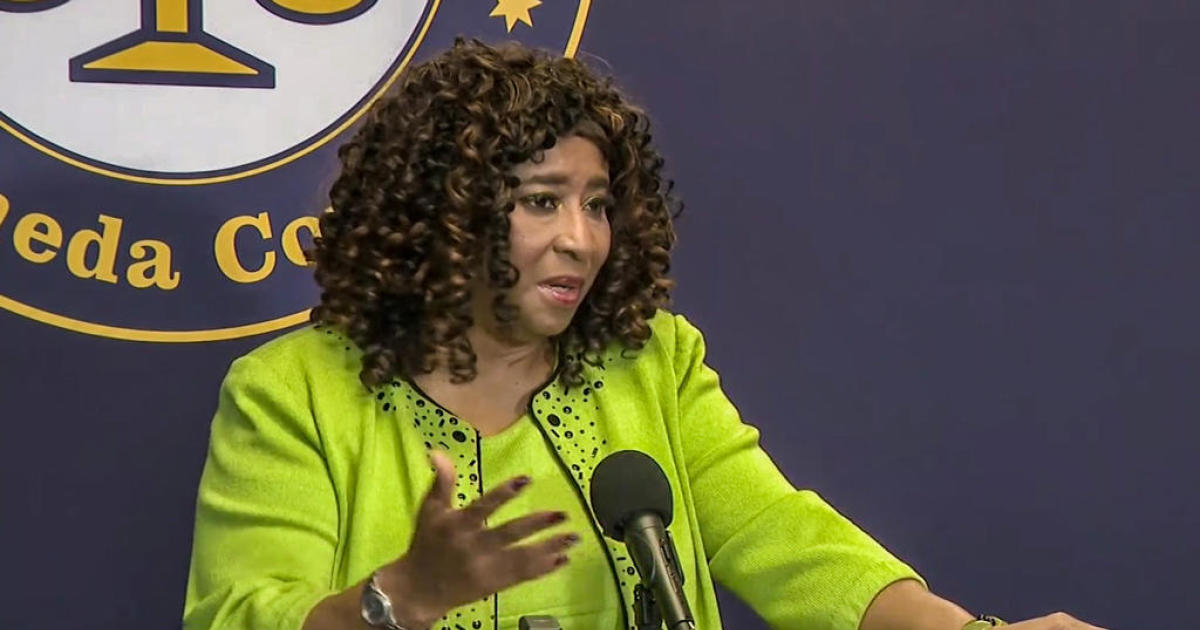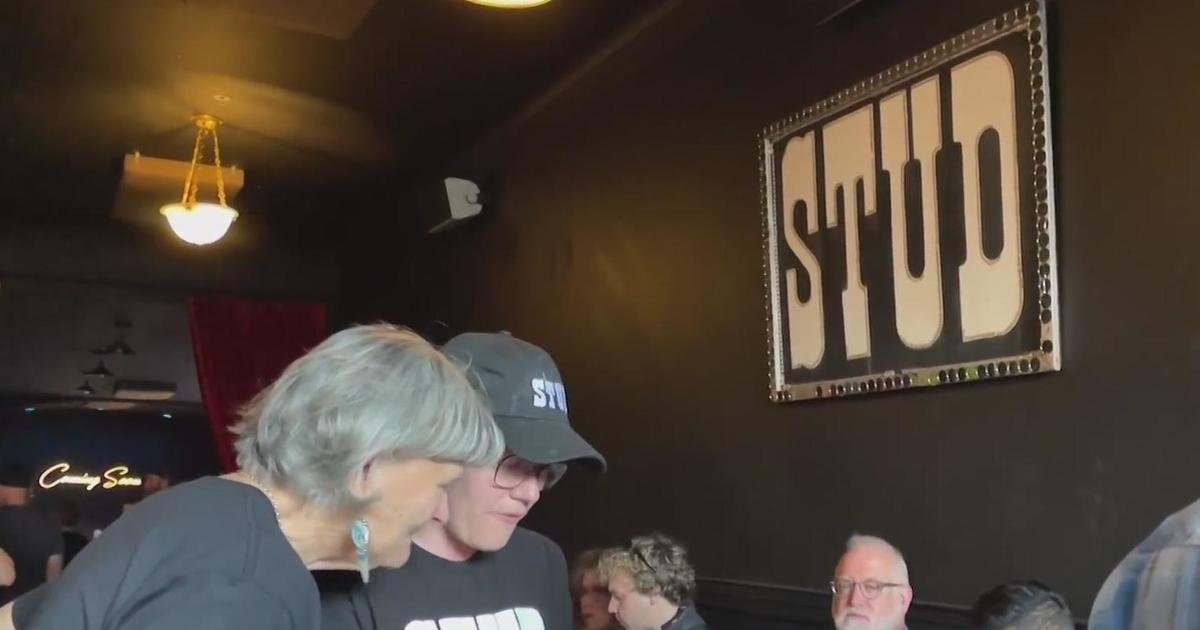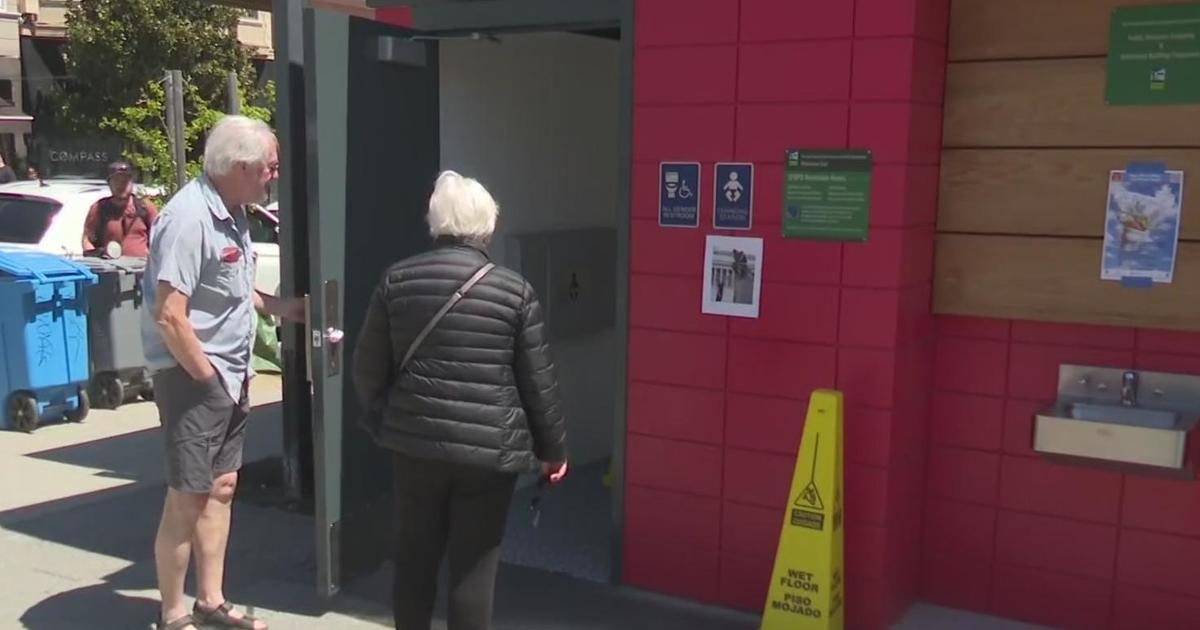A Tale Of Two Cities: The Oakland-Saint Denis Cooperation Project
OAKLAND (KPIX) - When we talk about Oakland, California, it's often about what's wrong with the city: rising rents, gentrification, homelessness and crime. That is not the case on the international stage.
The Oakland-Saint Denis Cooperation Project is shining a new light on the city, as a place teeming with solutions, because, in fact, Oaktown gets a lot of things right.
The award-winning Destiny Arts Center in Oakland was one of the first stops for a delegation from France, who were on a week-long learning expedition. The group will spend the next five days attending conference, and workshops, visiting arts organizations, and walking the streets.
They are not in Oakland to see the side that so often dominates the headlines. They've come in search of solutions.
It's all part of a cultural exchange between Oakland and the city of Saint Denis, in France.
Located on the outskirts of Paris, in the suburbs, the city is located in a region the French call the 'quatre-vingt treize', the 'neuf-trois', or in English, 'the 93.'
Both cities are outliers. The Bay Bridge separates Oakland from San Francisco; the Peripherique, the freeway that surrounds Paris, separates Saint Denis.
Like Oakland, the 'neuf-trois' has a bad rap: high crime, rising unemployment, unrest. The 2015 attacks that killed scores of young concertgoers at the Bataclan nightclub in Paris, ended in a raid and shootout. Where? In Saint Denis.
"(Translated from French) When you look at Department 93, it is the place with the most young people, the most unemployed, the most linguistic, political, economic and social problems," says Lemayne M. "And it's the place that takes in more immigrants than anywhere else in the world."
Lemayne M. is an artist. He is part of the delegation that traveled to Oakland. Born in Cameroon, he is one of the thousands and thousands of immigrants who live in Saint Denis.
One of his best-known projects, 'Les Grande Robes,' was created inside the 12th-century Saint-Denis Basilica Cathedral, the burial site for France's kings and queens. It is one of the country's most sacred spaces.
"I am black, obviously, but at the same time, I am Muslim. I had the opportunity to work in a sacred space that is completely Christian. I did this work to bring in the community that lives around the Cathedral in Saint Denis to claim its history," says Lemayne. "French history belongs to us, too. We are French, we live in France, we think in French and eat French food. It's also a chance for us to claim our own history, our heritage."
"It's incredible, the stark contrast," says Robert Ogilvie. "Louis XVI and Marie Antoinette, are there. Their bones are there."
Robert Ogilvie was part of the delegation that traveled to Saint Denis, last October. He is the Oakland director of the San Francisco Bay Area Planning and Urban Research Association, or SPUR, a non-profit whose mission is 'good planning, and good government.'
"Saint Denis is an immigrant hub," says Ogilvie. "As you walk around Saint Denis there are black West Africans and North Africans, combined with French of various stripes. That sort of polyglot element is similar to Oakland, a city with no majority."
"The energy was everywhere, as soon as we started," says Juliette Donadieu, the Cultural Attachee at the French Consulate in San Francisco.
After living in the neuf-trois for more than 10 years, Donadieu started the project in hopes the delegates can share solutions, scale them up, and good things will happen.
"We had urbanists, architects, artists, civil servants, academics, and none of them talk the same language," says Donadieu. "We are talking about translation between two cultures; but I think it's also talking about translation between practices."
"In some ways we are ships passing in the night but we are learning. What I mean is that in France, the government sector - the state - has traditionally spent so much money. They give out grants to the arts. So much of that is public sector. But in France, they are starting to withdraw that, for various reasons," Ogilvie explains. "So arts organizations, cultural organizations are now having to go out and understand how to support themselves. So, they are looking to America for examples of what to do."
"Americans think Oakland is a problem -- a thorn in their side," says Lemayne. "But what they don't understand is that social equilibrium and its diversity are interconnected, and the future of the world can be found today in Oakland."
"I think the first thing to do is to cross the bridge —- in France we say 'cross the peripherique,'" says Donadieu. "To go there and to look and change the way we see those territories, the people who live there, the people who every day make change -- the local heroes."
Juliette says both delegations went home energized, full of new ideas for the future.
"You can't raise children and cut off their wings," says Lemayne. "We are all different colors. We are different. We have to accept it. That's how society works."
"The more you repress the poor, the more you repress the culture. The more you limit their education, the more you limit the way they see things. If they don't rise with you, tomorrow they will be your enemies."
"Some of what we've learned is going to go straight into the planning documents in Oakland," says Ogilvie.
"Oakland is doing a specific plan for downtown, and the arts and culture-keeping is a big part of it. I think the learning has just begun."
Jan Mabry is a writer and filmmaker. She is the executive producer of Bay Area Focus and Black Renaissance, and hosts Black Renaissance. She lives in Northern California. Follow her on Twitter @janmabr.



